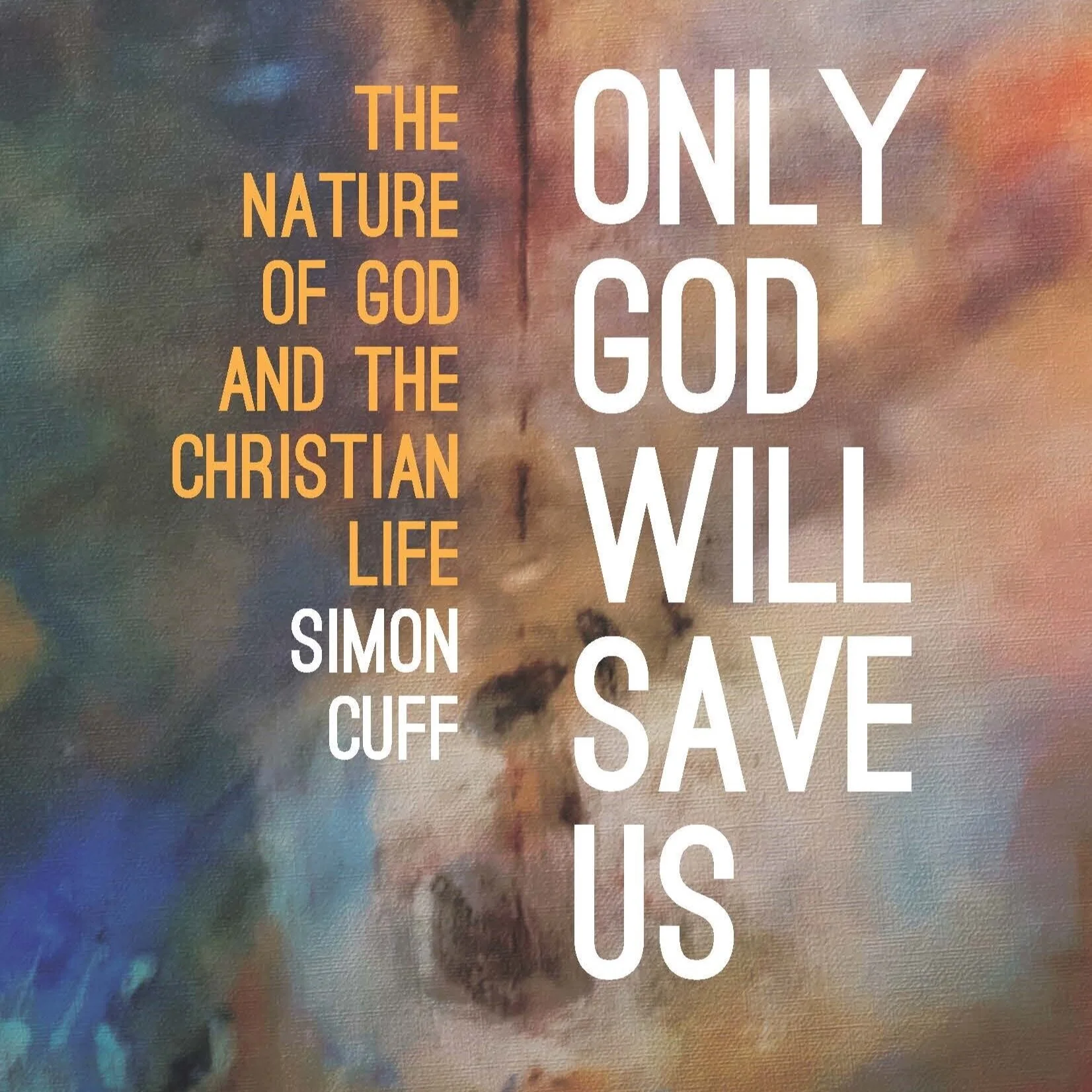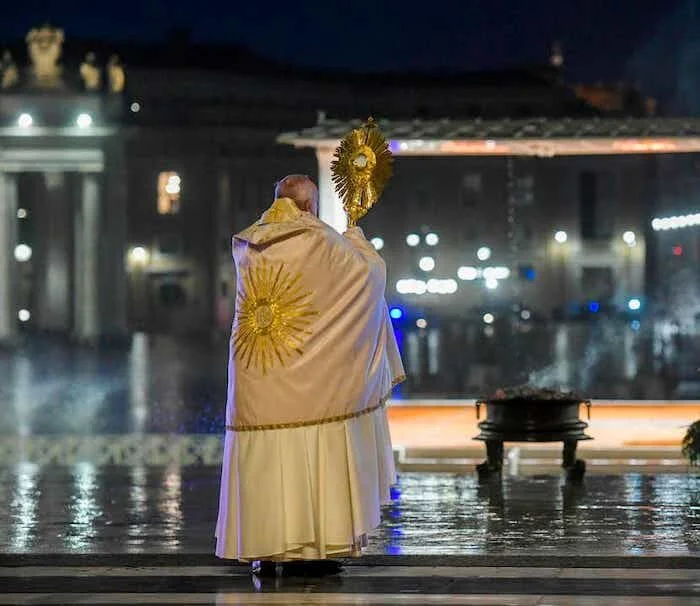Earlier today, the Archbishops’ Anti-Racism Taskforce, set up in 2020, released their long-awaited report, providing recommendations to the Church of England for combating racism and promoting racial justice. Fr Jonathan Jong provides commentary on this report.
The School of Theology returns
The School of Theology is pleased to announce our return to regular posting. The Web Editor has been on extended parental leave, made even longer by the pandemic.
In the coming months, we will feature reflections on faith and ministry during lockdown, followed by a supplement to our series on Christian vocation, about the daily lives of clergy in different contexts.
Divine Simplicity Beyond Negative Theology
August 16th marks 14th anniversary of Barry Miller’s death. Miller was a philosopher and Marist priest, and our series on divine simplicity gives us a good opportunity to discuss his work. Fr Jonathan Jong tries to explain Miller’s quite difficult ideas on this topic.
Christian Symbolism: The Pelican in Her Piety
The Physiologus is a strange hybrid of genres, at least to modern eyes. Much as the Gospels are neither quite straightforward biography as we now understand the genre, nor entirely pious fiction, the Physiologus is neither quite natural history nor entirely a collection of just-so-stories.
Book Launch: Simon Cuff — Only God Will Save Us (SCM Press)
Fr Simon Cuff’s new book Only God will Save Us: The Nature of God and the Christian Life is released at the end of June and is now available to pre-order.
On receiving communion in desire
There has been some kerfuffle since the Archbishops called for churches to close, but whether or not priests are saying masses in their parish churches, most other people will not be receiving communion for a while. This has led to increase talk of “spiritual communion”. Fr Jonathan Jong provides some background to this idea.
"Thoughts from a Cloistered House"
On Match 17, the Archbishops of Canterbury and York called for a hold on public worship. This is a sensible move as a means of containing the spread of COVID-19 and therefore of protecting those most vulnerable to infection . However, it also brings us great sadness: we Christians who regularly gather around the Lord’s table especially on the Lord’s day, come to share a sacrificial meal in which we are indeed united with the risen Christ. In looking around for what to say about this, we found this brief and moving reflection by Canon Dr Grant Bayliss over at the Cathedral: https://www.chch.ox.ac.uk/blog/thoughts-cloistered-house
On receiving communion in one kind
Yesterday, the Archbishops of Canterbury and York issued a statement about the necessity of suspending the administration of the chalice. This gave Fr Jonathan Jong an opportunity to write about the doctrine of concomitance and the utraquitist controversy in the 15th century.
What should I give up for Lent?
“What should I give up for Lent?” is a question many of us ask at the beginning of Lent. Fr Jonathan Jong thinks through this question in a reflection on Luke 4.1-13, medieval penitentials, and the Church Fathers’ thoughts about abstinence and almsgiving.
Science and Religion series — “The Galileo Affair, Part 2: Galileo”
Here’s a story often told: Sometime in the 17th century, Galileo taught that the Earth revolved around the Sun, which is obviously true. Refusing to believe him because it made them feel cosmically insignificant, the Church authorities tried to silence him. They even refused to look through his telescope when he offered it to them to see for themselves. Ultimately, they banned his books and sentenced him to imprisonment.
Science and Religion series -- "The Galileo Affair, Part 1: Copernicus"
Obviously, the Earth revolves around the Sun. This is obvious now in part because we—maybe not me or you, but someone—can go to space, and see it happening. The trouble is that is was not at all obvious in 1543. Nicolaus Copernicus died in 1543: he lived just long enough to see the publication of his magnum opus, On the Revolutions of the Heavenly Spheres. It is said that he held a copy of it on his death bed.
Happy Christmas!
Regular programming will resume on the Epiphany, with more hymns and carols. Till then, here are two images of the nativity.
Why should Christians care about industrial action?
As I am writing this, universities across the United Kingdom are participating in industrial action—including strikes—over a variety of disputes: pension contributions are being cut, pay over the last decade has decreased by about 17% relative to inflation, women and people of colour are paid less than White males (by 9-15%), workloads are increasing, staff are being evaluated in reductive ways, and work contracts are becoming more “casual”, which makes employment more precarious, especially for junior staff, women, and people of colour.
Summer Break
School of Theology is now on summer break and will resume regular posts on October 16th.
Theologising the Fear of Death, Pt 2
There is another obvious explanation for the findings we previously considered, which suggest that people do not really fear death. But this strategy risks being a question-begging one: that is that the fear of death is, in most people for most of the time—and perhaps most of all as death is nigh—sublimated or suppressed in some way.
Theologising the Fear of Death, Pt 1
It is not, these days, sexy to defend the fear of death, except perhaps as a transient stage in a process of grieving, à la Kubler-Ross, which is the last time her name will be mentioned in this paper. Perhaps it never has been sexy. All the same, I would like to try to provide a defence of sorts of the fear of death, not as good per se, but at least natural, rational, appropriate, and useful.
Holbein's Dead Christ, Dostoevsky's Idiot, and Chalcedon's Jesus
Hans Holbein the Younger’s The Body of the Dead Christ in the Tomb (1521—1522) depicts, in unforgiving realism, the mutilated corpse of a crucified man, claustrophobically entombed. There is no indication of who the man is in the painting per se; the identity of the anonymous criminal has be to imposed, from above as it were, in an inscription borne by angels, IESVS NAZARENVS REX IVDAEORVM.
Pentecost: Hearing in Tongues
I must confess that I am quite unable to tell apart an Ulster accent from a Scots one; or Cockney from Estuary; or Geordie from Scouse. I know RP when I hear it, of course; that’s just what villains in American films speak. Speaking of Americans, there is—as you might know—no better way for an American to encounter British snobbery than to talk about eggplants and cookies, bathrooms and the fall, candy and trash, and, the worst crime of all, pants. […]
Jean Vanier (1928-2019): More Human
Jean Vanier—philosopher and founder of the L’Arche community—has died, aged 90. Just after his 90th birthday in September last year, he posted this video about his “10 rules for life to become more human”.
Rerun: Holy Week years past
We are still on a short break here at the School of Theology. Last week, we posted this year’s sermons; this week, here are the Holy Week sermons from 2017 and 2018 too. Regular programming resumes next week.



















